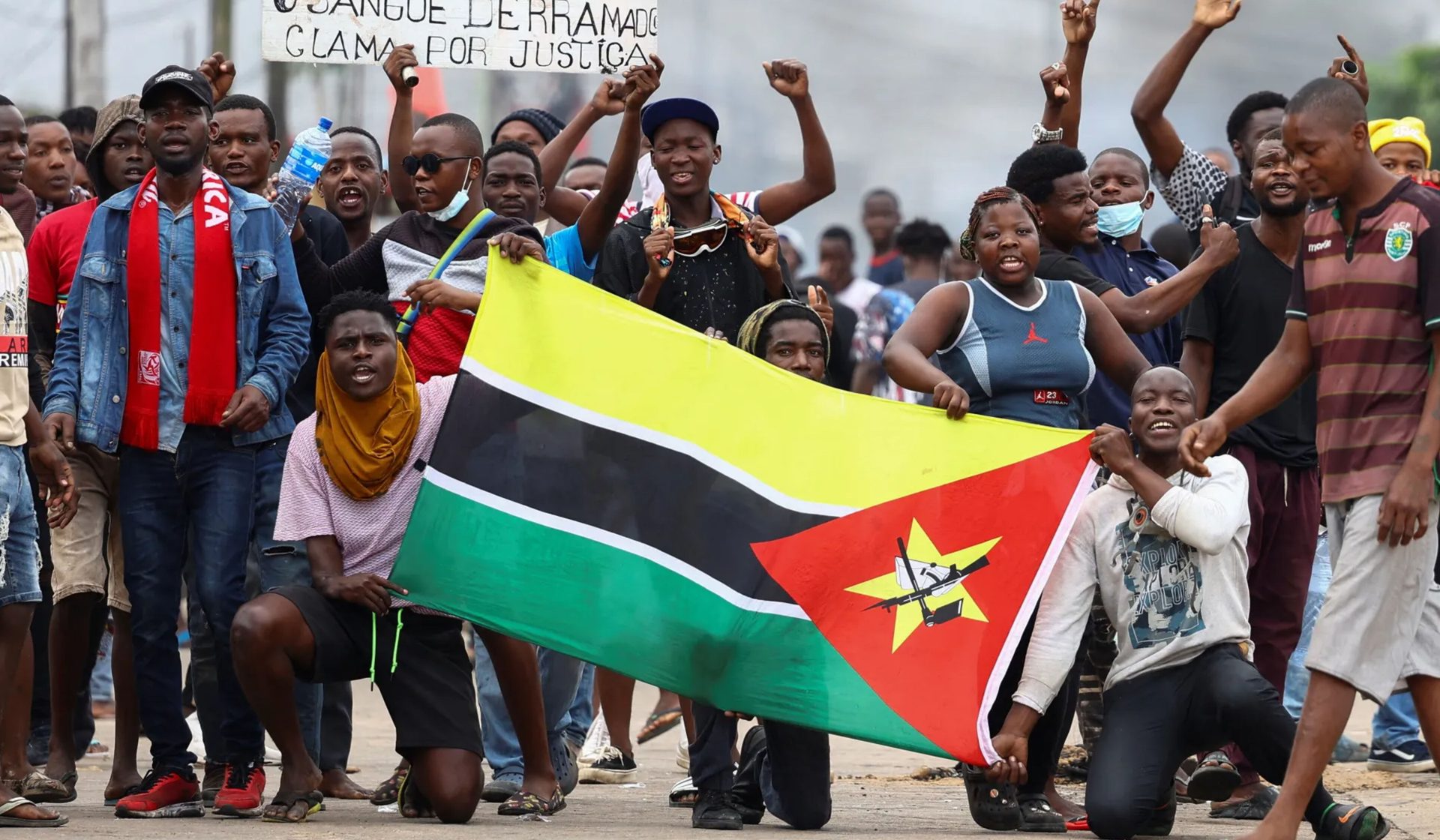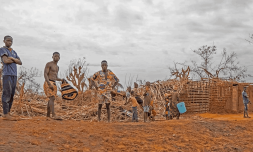Mozambique’s contentious general elections held in October have turned violent in recent months as thousands turned to the streets, disputing Daniel Chapo’s win led by opposition leader, Venâncio Mondlane.
Mozambique violence has not only claimed hundreds of lives but also displaced thousands of people, forcing them to seek refuge in neighboring countries. The fire which ignited in October, has seen countless youths clash with police.
The presidential result was much disputed, as the Frelimo party’s Daniel Chapo emerged as the apparent winner over the expected appointment of the Podemos party’s Venancio Mondlane. This sparked immediate conflict within the country.
Chapo’s victory has been marred by allegations of electoral fraud, including accusations of ballot stuffing, and irregularities in vote counting as alleged by Mondlane and EU observers.
Without hesitation, Mondlane’s supporters took to the streets demanding a recount and expressing contempt at Chapo’s win announcement. The government’s heavy-handed response to these protests only escalated tensions as police reportedly killed hundreds and clashed with thousands more.
The scale of resulting displacement continues to grow, meanwhile. According to the UNHCR, over 3,000 people have crossed into Malawi and Eswatini, seeking refuge from the political unrest. The organization has reported that rescue camps are already overcrowded while many more continue to cross borders.
The violence is disproportionately affecting Mozambique’s youth, who make up close to 80% of the population according to the UNFPA data. Schools in the northern regions have been closed indefinitely, leaving thousands of children without access to education just as the new year is beginning.
This disruption threatens to deepen an already concerning educational gap in a country where literacy rates are among the lowest in the region.
On Monday, the opposition leader – who has been in exile for months – announced that he will return to the country on Thursday, 9th January ahead of the swearing-in of Daniel Chapo the following week. The inauguration was confirmed after the country’s Supreme Court declared Chapo’s win legitimate following a fierce two month court battle.
Mondlane, who has mastered the use of social media to galvanise youth in Mozambique, has alleged to have survived assassination attempts in South Africa where he sought refuge.
Numerous international organizations have expressed concern over the rising situation, with the African Union and United Nations urging for an immediate end to the violence. However, meaningful intervention remains vague, as the incoming government and opposition forces continue to blame each other for the unrest.
Both civil society groups and religious leaders in Mozambique have called for dialogue to end the violence. Many are urging the government to address underlying grievances, including allegations of electoral fraud and systemic inequality, which have fueled public anger, mostly amongst the younger population.
The unfolding crisis in Mozambique shows the fragility of peace in regions with deep political and social divides. For the thousands displaced and hundreds that have lost lives, the hope for a better tomorrow hinges on the actions of political leaders and citizens alike.
Let us hope an amicable solution is agreed soon by both parties.

















